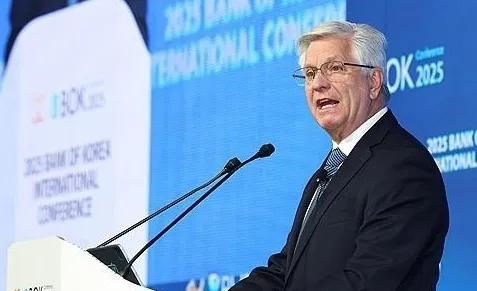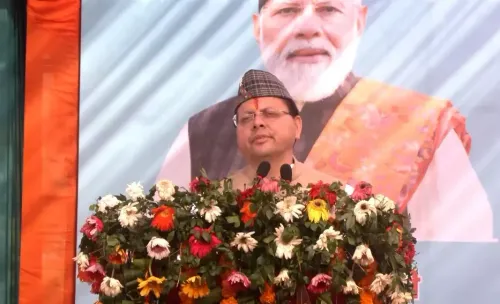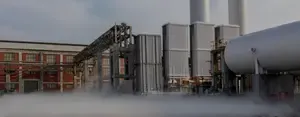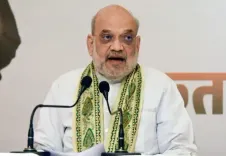Will Tariff-Induced Inflation Prove Temporary? Rate Cuts Expected This Year

Synopsis
Key Takeaways
- Interest rate cuts may be forthcoming later in the year.
- Tariff-induced inflation is expected to be temporary.
- The economic landscape is influenced by trade policies.
- Waller's insights emphasize the need for careful monitoring of inflation and employment.
- South Korean companies may adapt effectively to changes in U.S. tariffs.
Seoul, June 2 (NationPress) In a recent address, U.S. Federal Reserve Governor Christopher Waller indicated that he anticipates potential interest rate reductions later this year. This comes amid forecasts that extensive U.S. tariffs may temporarily elevate inflation and increase unemployment rates.
Waller, who serves on the Board of Governors of the U.S. Federal Reserve System, delivered these insights during his keynote presentation at the 2025 Bank of Korea (BOK) International Conference in Seoul, which focused on structural changes and monetary policy, as reported by the Yonhap news agency.
He stated, "I believe that any inflation caused by tariffs will likely be temporary and that expectations for inflation remain stable. Therefore, I advocate for considering the impact of tariffs on short-term inflation when determining the policy rate."
Waller elaborated, "If the effective tariff rate aligns closely with my lower tariff projection, and if underlying inflation progresses towards our 2 percent target while the labor market remains robust, I would support 'positive news' rate cuts later this year."
His lower-tariff scenario proposes a 10 percent average tariff on imported goods, with sector-specific duties potentially being negotiated down over time. Conversely, the higher-tariff scenario posits an average trade-weighted tariff on imported goods of 25 percent, which would persist for a longer duration.
Waller noted, "In both scenarios, I anticipate that tariff increases would provide a one-time price hike that would temporarily elevate inflation."
After the two-day Federal Open Market Committee (FOMC) meeting last month, the Fed decided to maintain its benchmark interest rate for the third consecutive time, citing increased economic uncertainty and the risks associated with heightened inflation stemming from Trump's aggressive tariff policies.
He highlighted "downside risks to economic activity and employment, along with upside risks to inflation" in the latter half of the year.
Waller remarked, "I foresee that tariffs will likely lead to a rise in the unemployment rate, which, all else being equal, may persist. Elevated tariffs will curtail spending, prompting businesses to respond by cutting production and payrolls."
However, he emphasized that the evolution of these risks is closely linked to the trajectory of trade policy.
During a dialogue with BOK Governor Rhee Chang-yong, Waller underscored that the current inflation landscape is distinct from that experienced during the COVID-19 pandemic.
He explained that the pandemic caused a prolonged impact on labor supply and resulted in global supply chain challenges. Additionally, he noted that the U.S. government's aggressive fiscal policy measures "overly" stimulated the recovery, contributing to more persistent inflation.
In response, Rhee mentioned that South Korean companies would likely adapt effectively if U.S. reciprocal tariffs settle around 10 percent.









